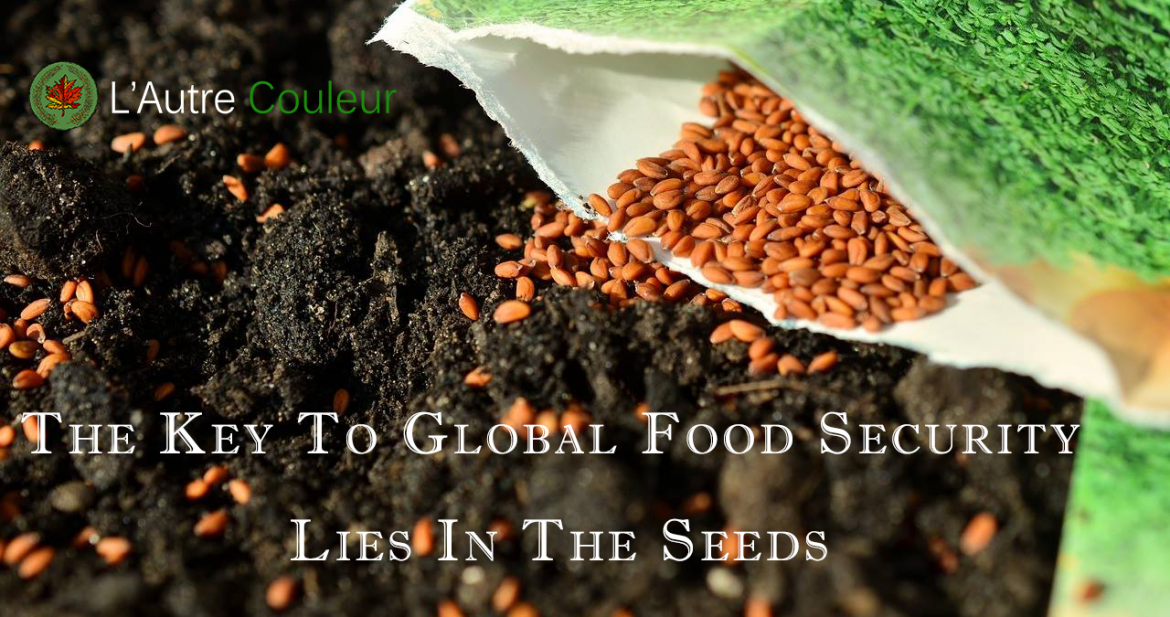
Which Is More beautiful, The Vegetable Or The Seed?
It seems everyday the “foodie community” is coming up with new blogs, websites, and magazines for people who love food to globally share their tricks and favourite recipes. It’s a prime time to discuss the importance of seed diversity.
What is Seed Diversity?
There is a growing focus, both locally and globally, about the importance of seed diversity.
This is because seed diversity means food security.
Seeing as not everybody works in the agri-food industry, it can be a bit of an abstract concept to fully understand. For all we know, (us non-farmers or gardeners), seeds are bountiful and everywhere! Right?
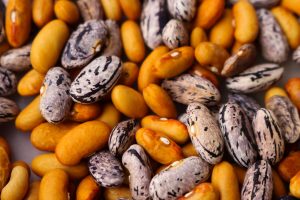
“All we need to grow crops is good soil, good weather and the right amount of water!”
Well actually… what we find at the core of these seeds is the very key that runs this global pulse.
Seeds have a variety of traits that are useful, including stress tolerance, high protein, or a difference in taste. From orange carrots, to dark green spinach, to red onion, to purple grapes, all vegetables and fruits mature into tasty and healthy food through the graciousness of their tiny seeds.
Today, more than 63% of the world’s commercial seeds are owned by only six corporations.
A World Without Seed Diversity
Let’s skip ahead and assume that farmers will receive their seeds from the same corporation that tests and grows their seeds uniformly (and in controlled conditions), such as Monsato.
With this assumption, farmers receive their seeds solely from this corporation and rely on these seeds to grow. That’s right. Farmers will have access to one type of canola seed, one wheat seed, you name it! Farmers across the entire WORLD will use the same seeds, regardless of differences in climate and soil conditions.
What will the implications be?
Now that many farms use the same seeds for their crops, it means they have the same vulnerabilities to disease, drought, and temperature changes.
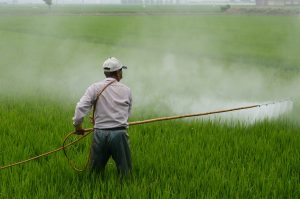
Some regions will require more pesticides, fertilizers and water, and it will be up to the farmers to figure out the concoction of chemicals needed in order to have their crops grow. Of course, Monsato will be providing the pesticides and the fertilizers to their valued clients.
In addition, contracts or “technology agreements” will be signed between farmers and Monsato will be able to dictate how farmers should grow their crops and force farmers to buy new genetically modified seeds each year.
Sounds like a great score for Monsanto doesn’t it?
The crazy thing is this is already happening worldwide!
Now Imagine A World With Seed Diversity
Let’s skip ahead again, but this time, imagine that seed diversity was conserved and nurtured. Farmers can get their seeds from a variety of seed banks, local markets, other farmers, greenhouses and more.
After testing and comparing different types of seeds, farmers will use their knowledge and expertise to determine which seeds will grow productive, disease-resistant and stress-tolerant crops.
Which scenario do you prefer?
Which vision makes you feel optimistic about our food system?
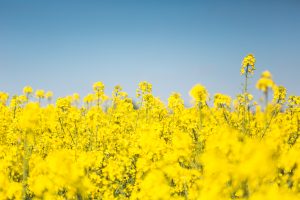
Meet The Players That Are Working Towards That World
For several years, USC Canada has been busy organizing Seeds of Survival (SoS), one of their core programs working in partnerships with farming communities in 11 countries around the world, such as Bangladesh.
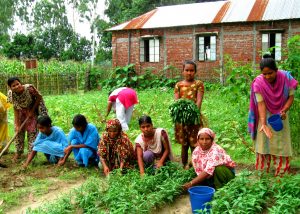
After partnering with two local partners in Bangladesh, – Samajik Kollan Songstha (SKS) and Udayankur Seba Sangstha (USS) – USC Canada has put in place programs that focus on agricultural biodiversity activities with 10,000 young women, ages 15 to 30.
Since then, a succession of young Bangladesh women have grown to be small-scale farmers through the help and implementation of the Seeds of Survival program. The benefits of establishing small, organic, household gardens are delivered directly to these young women.
These household gardens, coupled with the one-year training provided by Seeds of Survival, are breeding communities in Bangladesh that understand the importance of seed diversity. 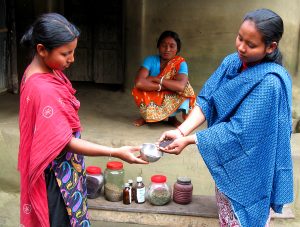
Young women are learning how to grow their crops in natural and effective ways, as well as select and save seeds to ensure next year’s growth
Once the crops are ready to harvest and sell, Seeds of Survival will also assist the participants to sell any surplus to the local market.
The result is a vibrant and sustainable community of young women in Bangladesh that are growing their own food through the supply of a variety of seeds that are stress tolerant.
Protecting Seed Diversity Close To Home
Montreal is blessed with an abundance of businesses that share the same matrix of ideas and understand the importance of seed diversity, such as The Green Panther.
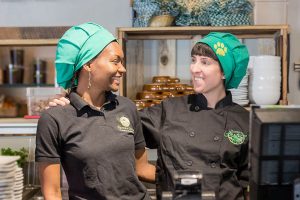
The organic and vegan restaurant has entailed a partnership with USC Canada to participate in protecting seed diversity!
With the mission of conserving seed diversity, The Green Panther has fundraised thousands of dollars by organizing various activities to fundraise money and support the program Seeds of Survival in Bangladesh.
They organized seed sales with all proceeds donated towards Seeds of Survival. For each granola jar that was sold during the month of September, The Green Panther made a donation of $1. Other great activities The Green Panther has endeavoured include organizing a fundraiser obstacle run and designing a gift-card draw with PRANA-BIO and a double 3-month pass by NAADA YOGA, of which the tickets were sold in all five locations.
You can walk into any of their five restaurants and feel good about your purchases. Not only are your meals fresh, organic and vegan, but you are also supporting a seed protector!
Interested In Protecting Seed Diversity?
If you didn’t get a chance to participate in any of these activities or draws, you can still be a seed protector by donating through The Green Panther’s website, under “Causes”.
By making a donation of $10, you are enabling a young woman in Bangladesh to develop the skills to sustain her family and be supporting a global food system.
By now, you might be thinking “I can go grab good food AND do good for the world!”
The response is yes.
When you have a meal at The Green Panther, you are directly empowering a community that fosters sustainable and social development, on a local and global scale. Participating in changing the world with your wallet has never felt so good.
So, how about it? Let’s stand up for these little fellas!
Why?
Seeds are to agriculture what the caterpillar is to the butterfly. They are less famous than the fruits and vegetables we love to consume. If we don’t start paying attention to these tiny but mighty players, we might just end up with one type of tomato for the rest of our cooking days.
And that seems like a pretty bland cooking prophecy, doesn’t it?
If you enjoyed the article I invite you to subscribe to our monthly newsletter! It will allow you to stay up to date with the latest information regarding sustainable initiatives in North America.
